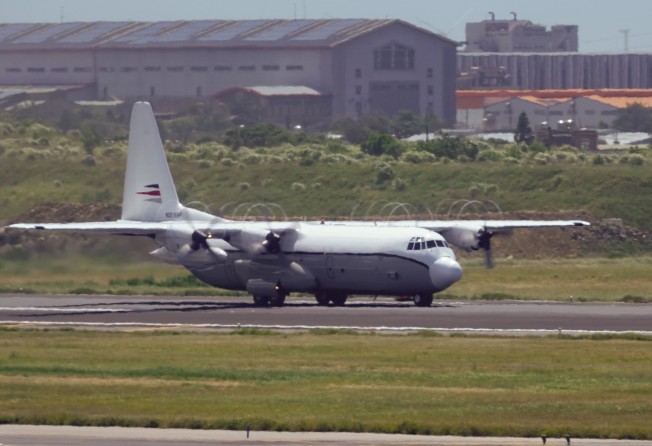
01:34
US sends 2.5 million Covid-19 vaccine doses to Taiwan

The United States’ deployment of military aircraft to Taiwan in recent weeks is a new tactic to reinforce its relations with the island, analysts said.
The tactic, using military aircraft to perform diplomatic actions, signalled the White House’s position while avoiding a serious confrontation with mainland China, they said, after a third such plane landed in Taipei on Tuesday.
On Monday, a US aircraft landed at Taoyuan International Airport to deliver diplomatic pouches to Sandra Oudkirk, the new director of the American Institute in Taiwan (AIT), the US’ de facto embassy in Taipei. The C-130 plane, a military transport aircraft, did not have a US Air Force sign and was chartered by the AIT.
Four days earlier, last Thursday, a US military C-146A Wolfhound departed from Kadena Air Force base in Okinawa, Japan, and arrived in Taipei the same morning, also to deliver a package to Oudkirk.

01:34
US sends 2.5 million Covid-19 vaccine doses to Taiwan
Early last month, a delegation of US senators visited Taiwan to announce the donation to the self-ruled island of 750,000 doses of Covid-19 vaccines.
“These highly publicised flights look purely diplomatic in nature and probably do not have a military dimension,” said Ben Ho, a military analyst at the S. Rajaratnam School of International Studies in Singapore. “They seem to be steady and incremental measures to show America’s desire to intensify relations with Taiwan while still adhering to Washington’s one-China policy.
“The fact that these deployments were not kept under wraps shows that the Biden administration wants to signal to China that it is doubling down on Donald Trump’s Taiwan policy. However, the nature of these deployments – which have been very small-scale with only a single plane each time and involving only brief stopovers – also indicates that Washington does not wish to prod Beijing too much.”
Commentator and former Chinese military instructor Song Zhongping said that the US was deliberately testing Beijing’s patience and bottom line by piecemeal advancement of its position regarding Taiwan.
“This is to help Taiwan to be independent in a dangerous and salami-slicing approach, while at the same time enraging the Chinese mainland,” Song said, adding that tension was bound to flare up if Washington and Taipei continued to edge closer.
The US and Taiwan have developed closer relations and cooperation on a range of issues since Trump became US president in 2017, with the trend continuing under his successor Joe Biden.
Beijing regards Taiwan as a breakaway province, to be brought into its fold by military means if necessary.
Under Trump, the US approved US$18.3 billion worth of arms sales to Taiwan. It also passed a series of Taiwan-friendly bills and measures, including giving permission for high-level official exchanges between Washington and Taipei, and allowing the Department of State to issue new guidelines for official contact with Taiwanese counterparts.
The US has sent warships to the region, with some of them conducting freedom of navigation operations and passing through the Taiwan Strait.
The landing of military aircraft last week triggered an angry response from Beijing, which said that the US had violated China’s sovereignty over its airspace.